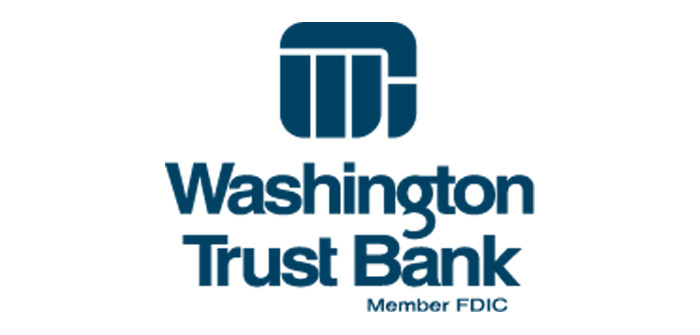As a new year unfolds, businesses and individuals are naturally curious about the opportunities and challenges ahead. The future is never easy to predict, and being in an election year only adds uncertainty to the mix. National politics aside, much of the focus locally is likely to be a continuation of the most pressing concerns leading into 2024: the interest rate environment, economic growth prospects, and the real estate situation.
Interest rate fluctuations anticipated
For more than a decade, the Federal Reserve has suppressed interest rates, keeping them at lower-than-average levels to spur economic growth, particularly in times of adversity such as the 2008 financial crisis and the 2020 pandemic. As inflation reared its head in 2022 and the Fed began raising rates, which increased borrowing costs for consumers and businesses both of which had grown comfortable with rates in the low single digits.
The Fed’s rate hikes have benefited savers, many of whom are realizing higher returns on their deposits, CDs and money market funds. However, borrowers are still coming to terms with the higher cost of borrowing. Companies built around a business model assuming low financing costs are feeling the pinch, as continued investment in their operations and growth may be moving out of reach. Such business models likely need to be reevaluated and adjusted.
For consumers, big purchases are coming with higher price tags as current rates are elevating monthly payments. The impact is perhaps most apparent among aspiring home buyers, who are finding that homes previously within reach are now unaffordable. The tight real estate market is further affecting prospects — more on that later.
All eyes will be on the Fed this year to see if the tightening trend is coming to an end. At Washington Trust Bank, we expect short-term rates to remain fairly stable for the first half of the year and could see some easing toward the end of the second quarter. On the other end of the spectrum, some range-bound volatility is expected for longer rates, and inflation measures should continue to be a key driver.
Economic growth in step with nation
From a growth perspective, the Oregon and Bend-Redmond economies are keeping pace with the rest of the nation. The U.S. economy grew at an annualized rate of 4.9% in the third quarter 2023, compared to a 4.8% rate for Oregon. Our state and region are expected to continue performing similarly to the U.S. as a whole, but two issues could affect Central Oregon’s progress.
First, a stable and growing labor force is essential to economic expansion, as businesses need a strong talent pool from which to draw additional workers. In 2023, Oregon lost workers. As of November 30, 2023, the most recent data available, Oregon experienced a 1.7% year-over-year decline in its labor force. The Bend-Redmond labor market outperformed the state, but it still reported a loss of 1.1%.
Second, a workforce needs housing priced within their means, and Oregon, like many states, has grappled with an affordable housing shortage. On average, a worker in Oregon would need to allocate 58% of their paycheck to cover their mortgage payment, based on the state’s median home price and the current 30-year mortgage rate. In Bend-Redmond, where home prices have risen dramatically, the average mortgage payment would consume 87% of a worker’s paycheck. If workers feel compelled to relocate for more affordable housing options, that migration could be a factor in the region’s declining labor force numbers.
Real estate market sees some reticence
The affordable housing issue in Bend-Redmond has been exacerbated, in part, by the influx of new residents attracted to the area’s climate, recreational opportunities and natural beauty, among other qualities. Central Oregon is touted broadly as a wonderful place to live, and it certainly is, but people drawn to the community often arrive from higher priced markets. These new residents may buy with cash or simply outbid local buyers, driving up home values.
Additionally, those who bought homes when 30-year mortgage rates were at or near bottom appear in no hurry to purchase a new home at today’s higher rates. Rates were held artificially low for so long that consumers may have normalized them, even though today’s rates are more in line with historical averages. If rates enter a 5% to 6% range, consumer expectations should adjust and activity pick up. For now, little existing home inventory is available, putting further pressure on the real estate market. New construction may help fill the void as developers seek to address demand, but higher labor and material costs are pushing up prices.
On the commercial real estate side, a lack of available land in some areas, such as Bend, and heightened material and labor costs have constrained new construction projects. Redmond has been an exception, particularly on the industrial development side, where more land has been available at lower cost compared to Bend. Financing, however, has become more challenging as many investment projects are required to put 50% down to secure capital. In some cases, the cost to build has outpaced the value or expected return on investment, as rents may not support the performance that investors seek.
Sentiment skews optimistic and opportunistic
Recent years have reinforced that nothing is ever certain. Indications are that Oregon and the Bend-Redmond economies will perform similarly to the rest of the country in 2024, with very modest growth anticipated. For businesses and individuals alike, now is a good time to take stock of financial matters and consider how to be best positioned to retain stability and perhaps even take advantage of opportunities that could arise should a downturn or recession materialize.
At Washington Trust Bank, our advisors are ready to assist consumer and commercial clients in considering opportunities in Central Oregon and finding solutions that help achieve financial goals for 2024.
Cory J. Allen is senior vice president and team leader for Washington Trust Bank in Central Oregon. He can be reached at cjallen@watrust.com.



